hybrid narratives, hybrid histories
November 28 - December 14, 2019 * U10 Art Space * Belgrade, Serbia
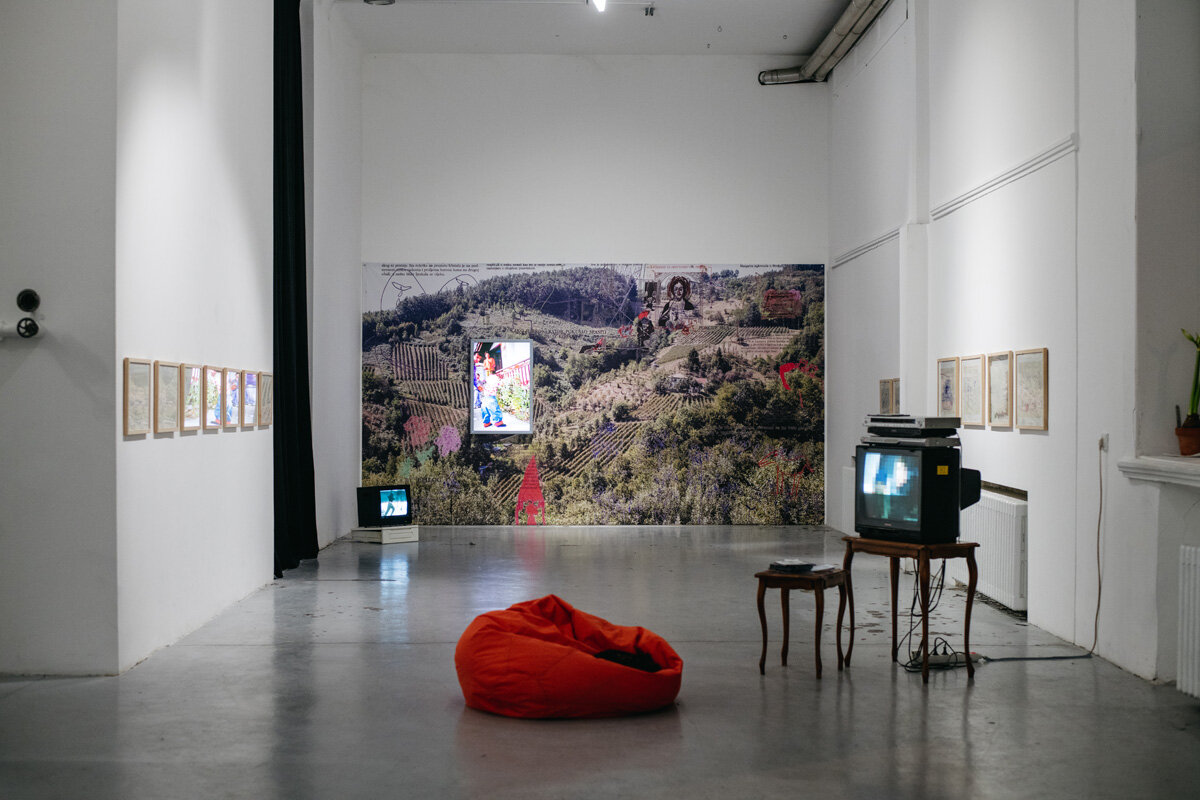

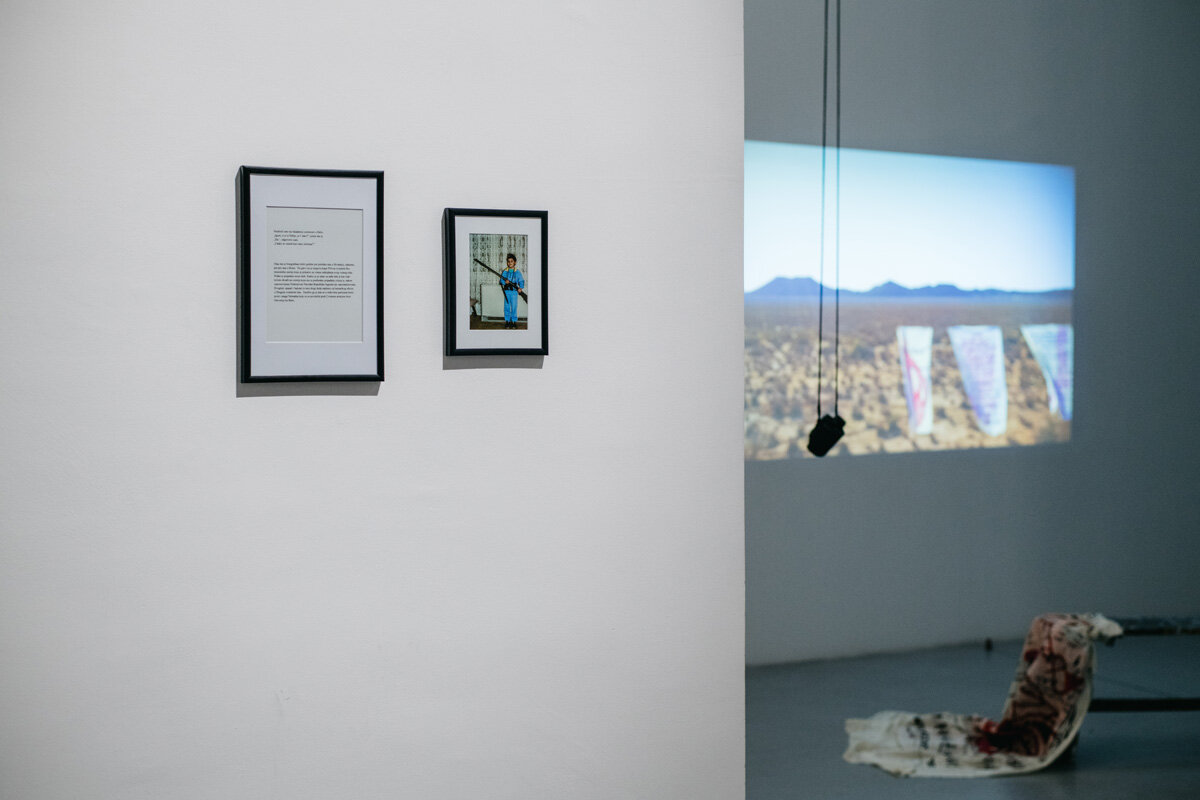
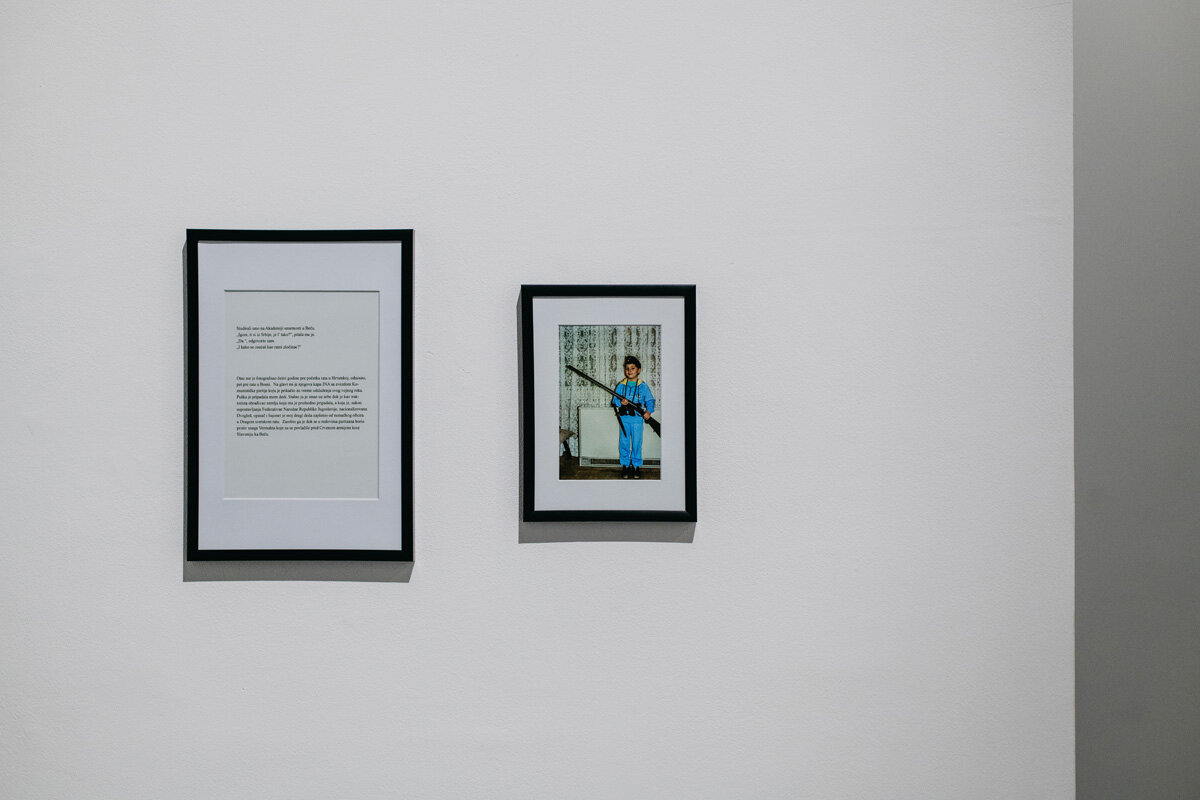
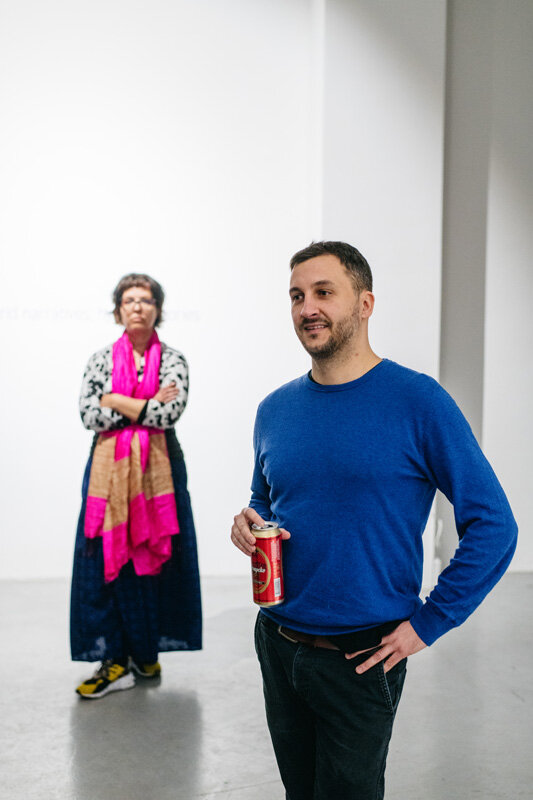
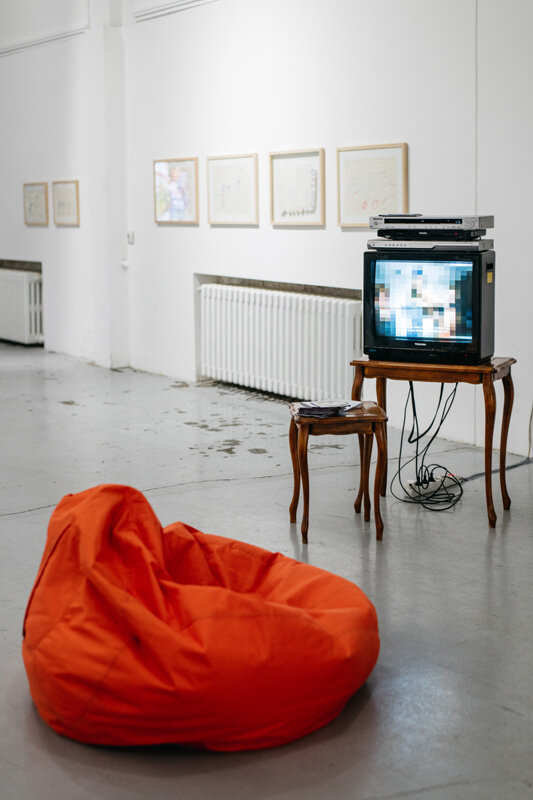
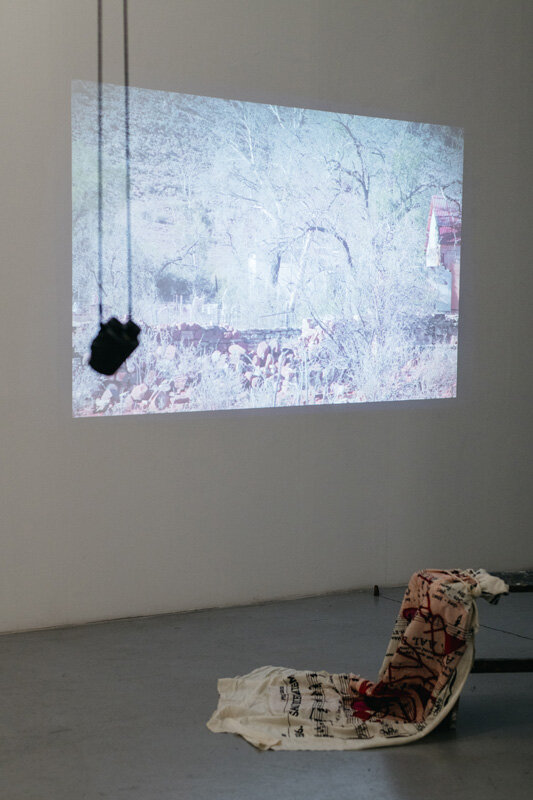
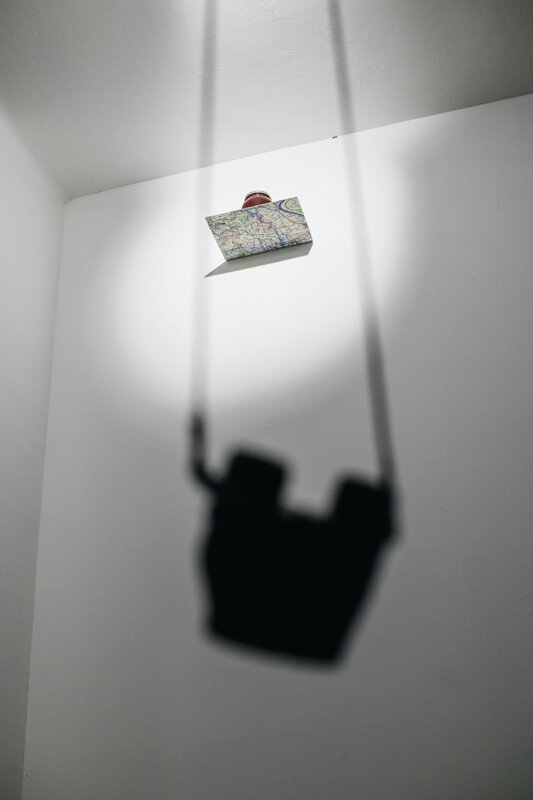

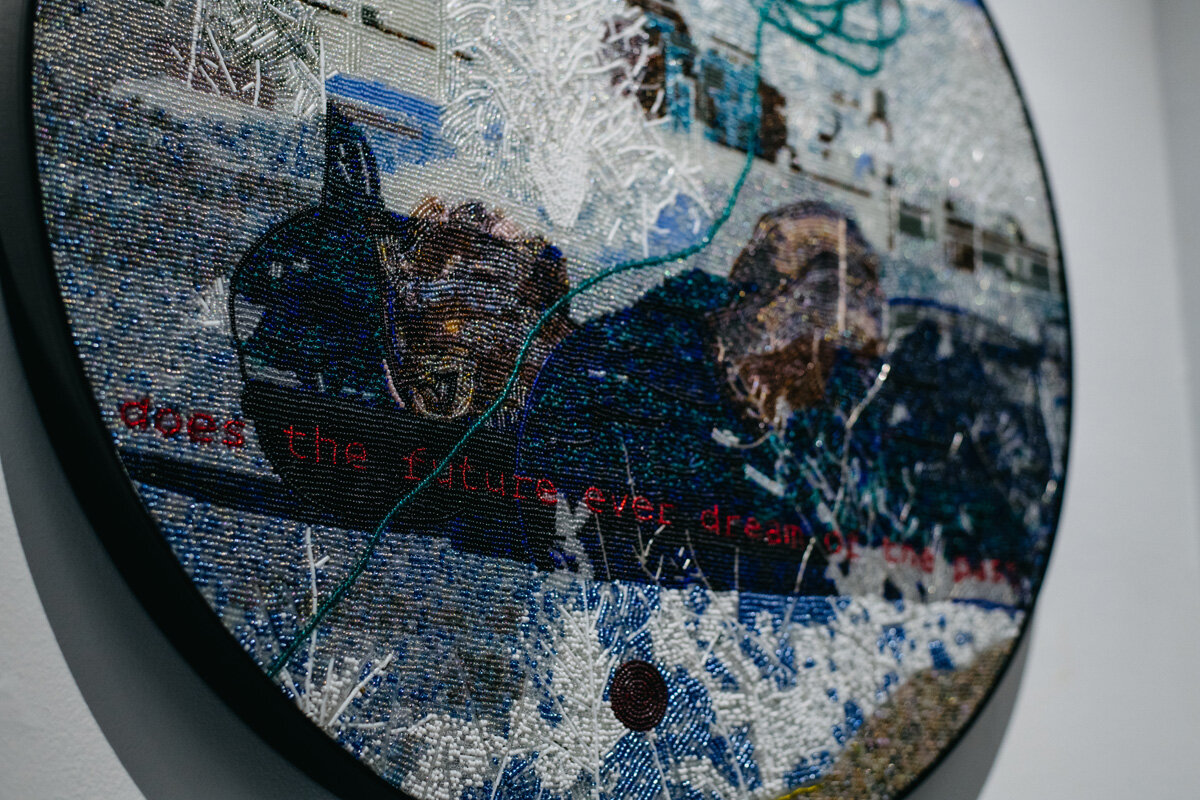

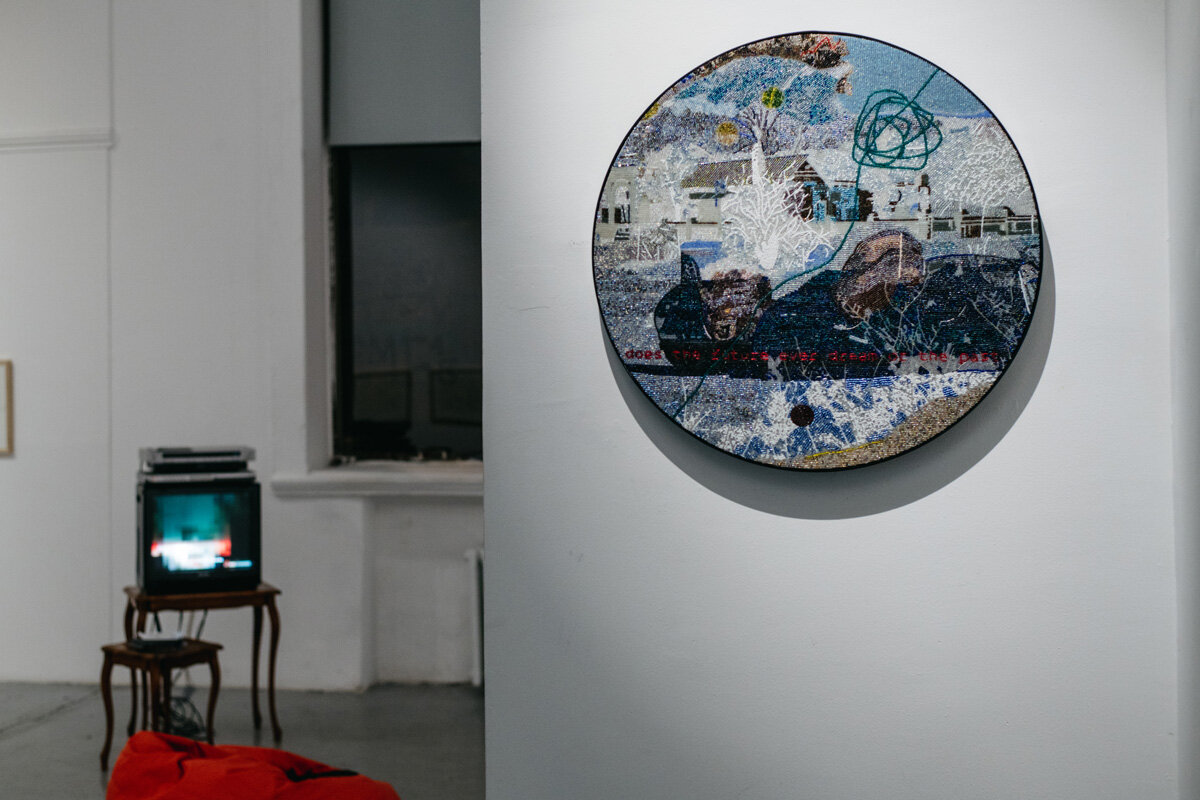
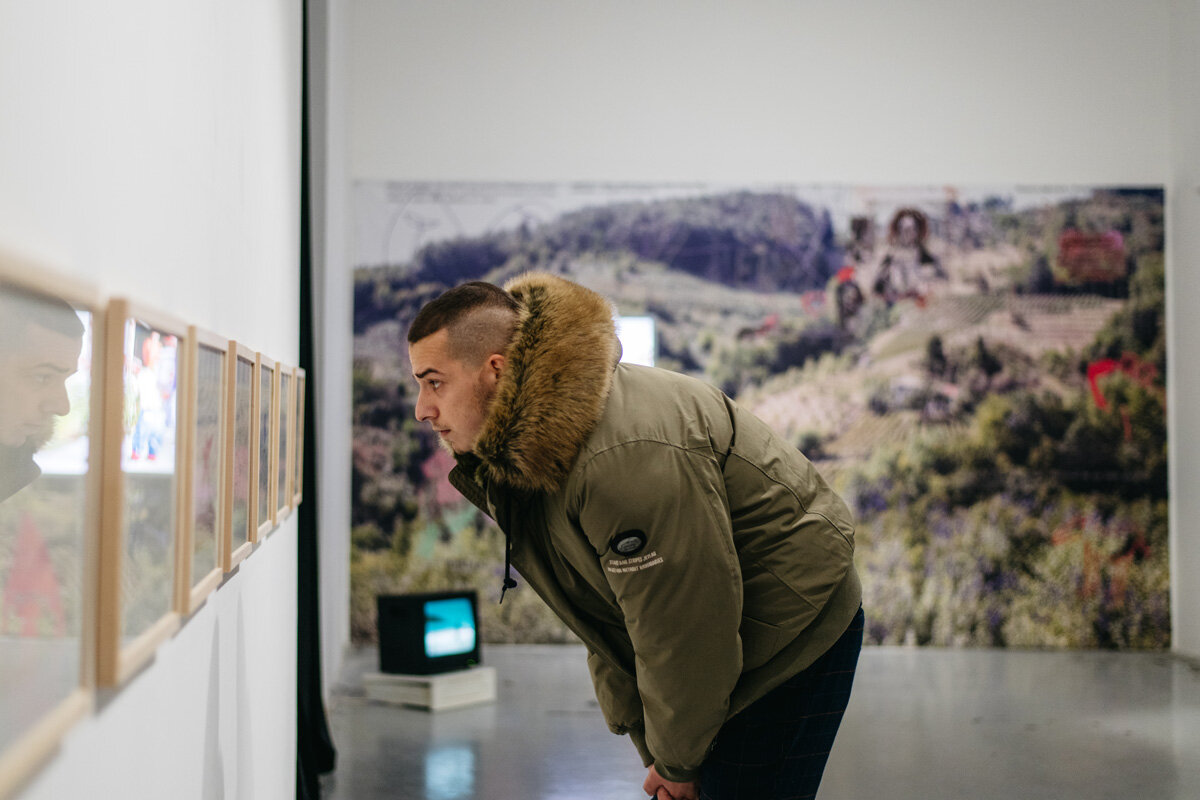
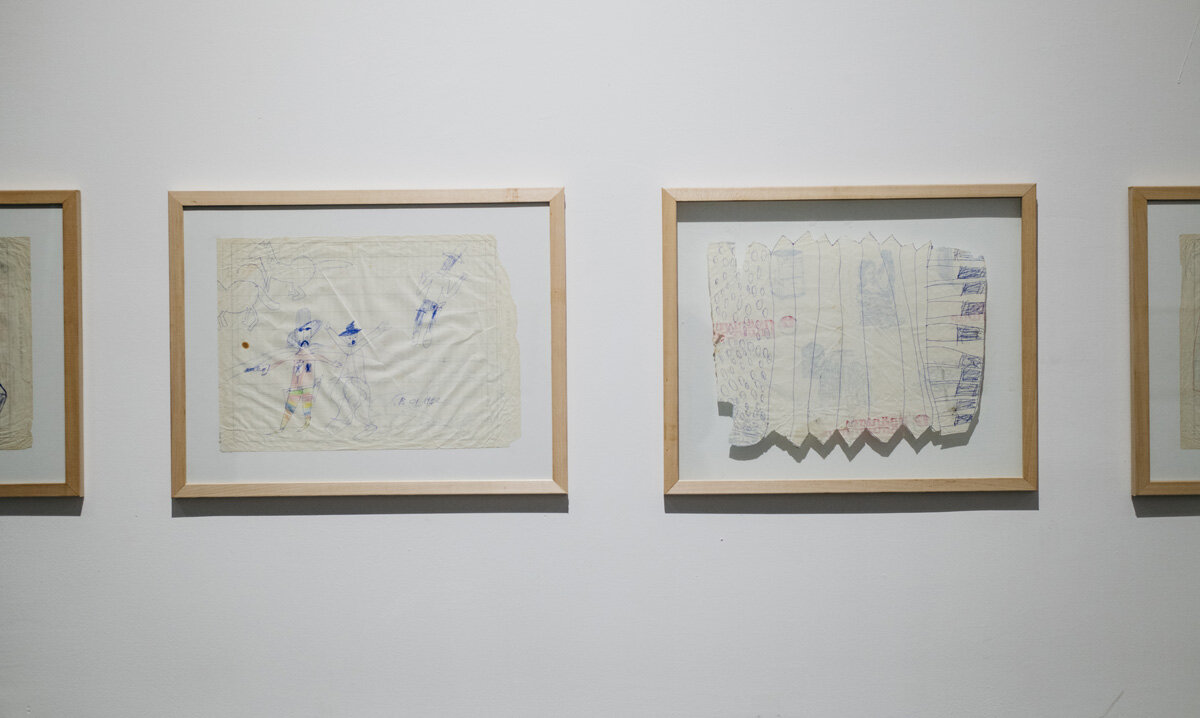
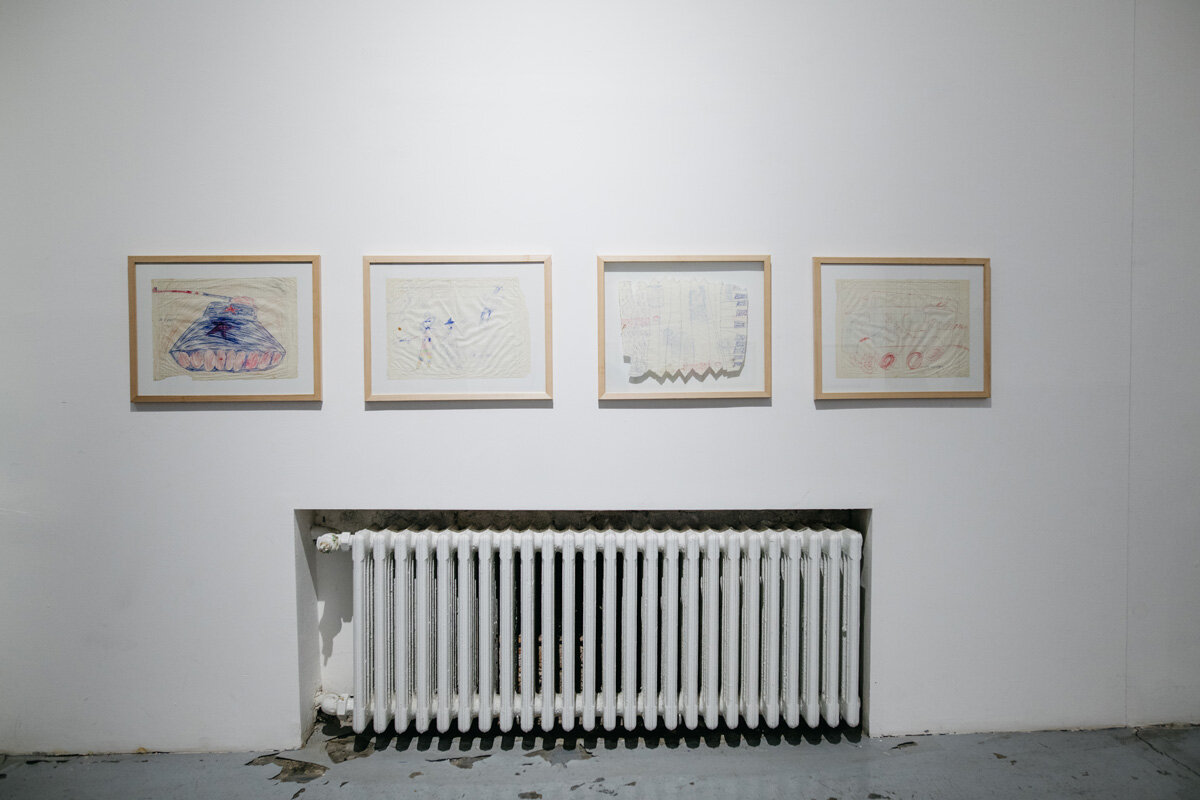
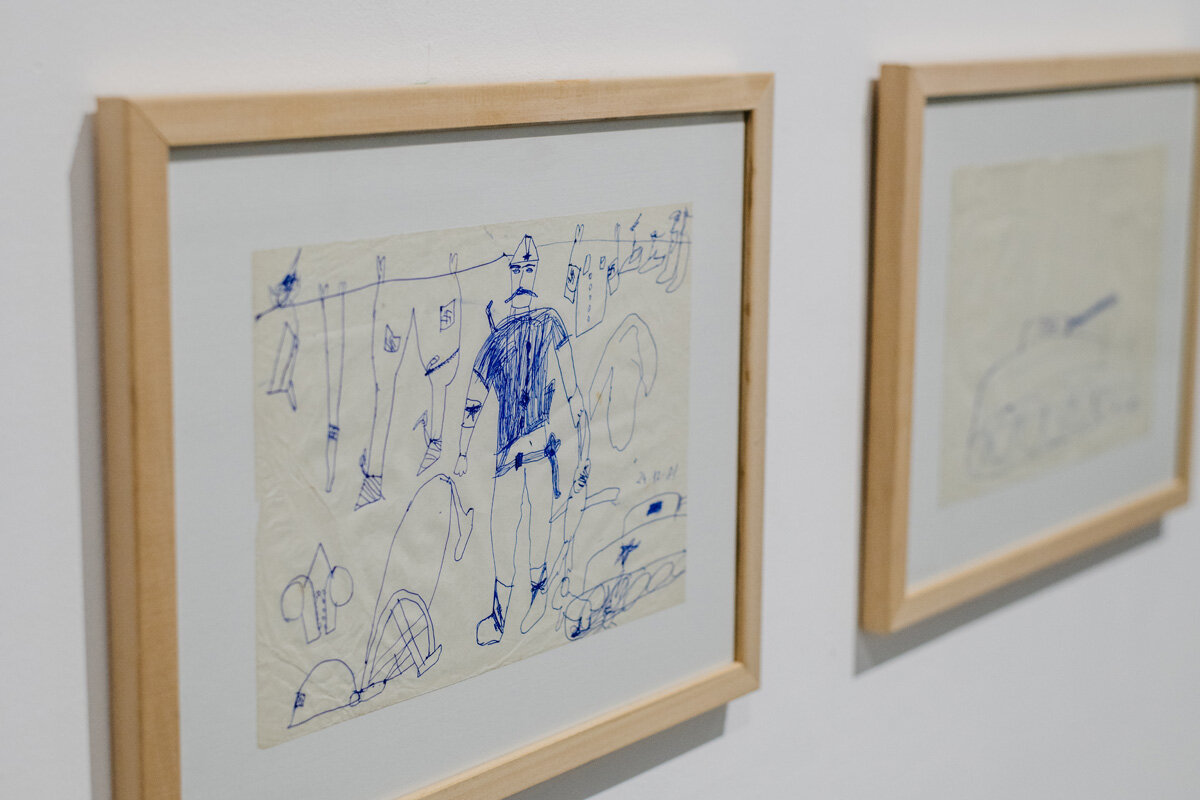
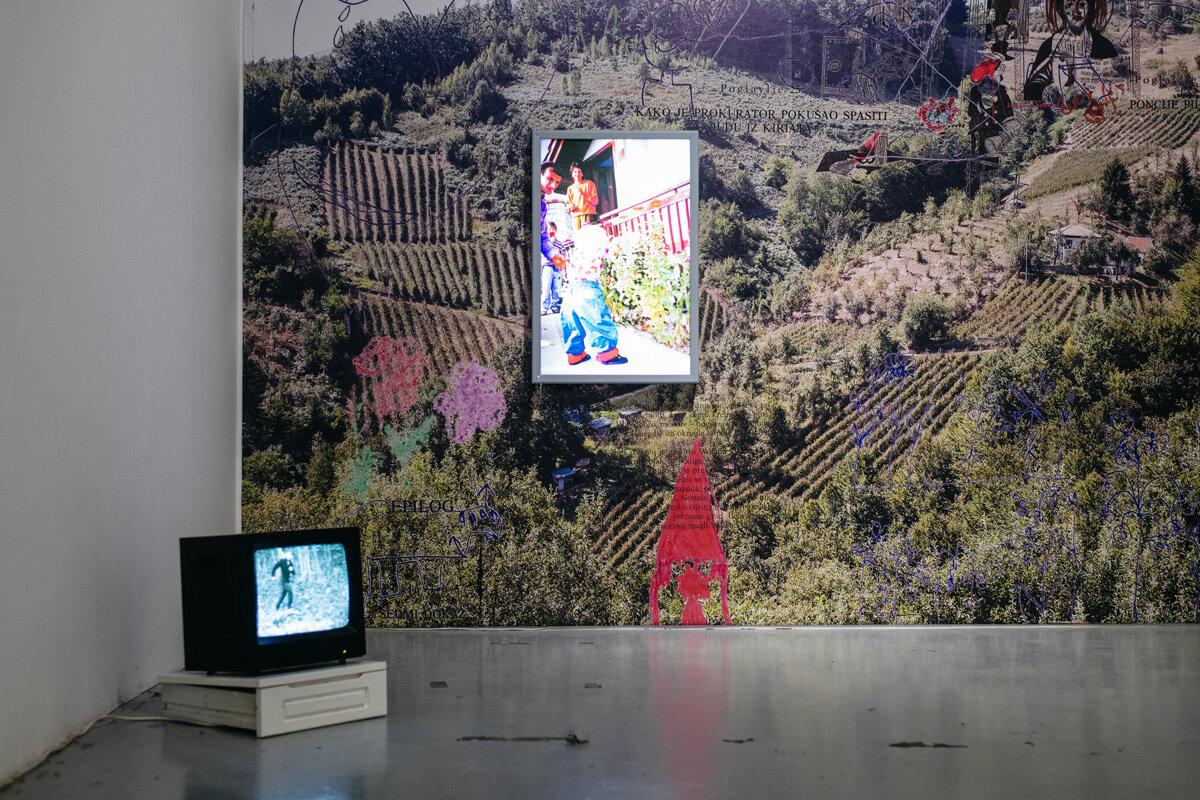
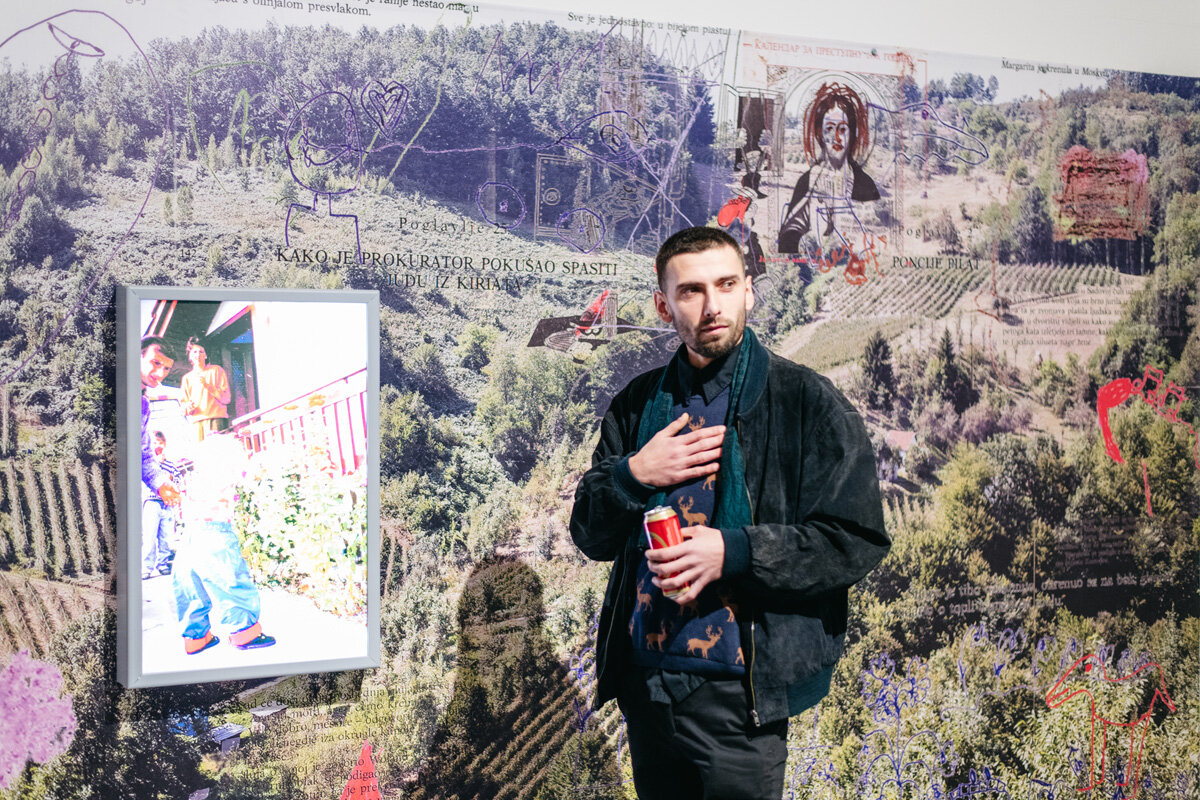
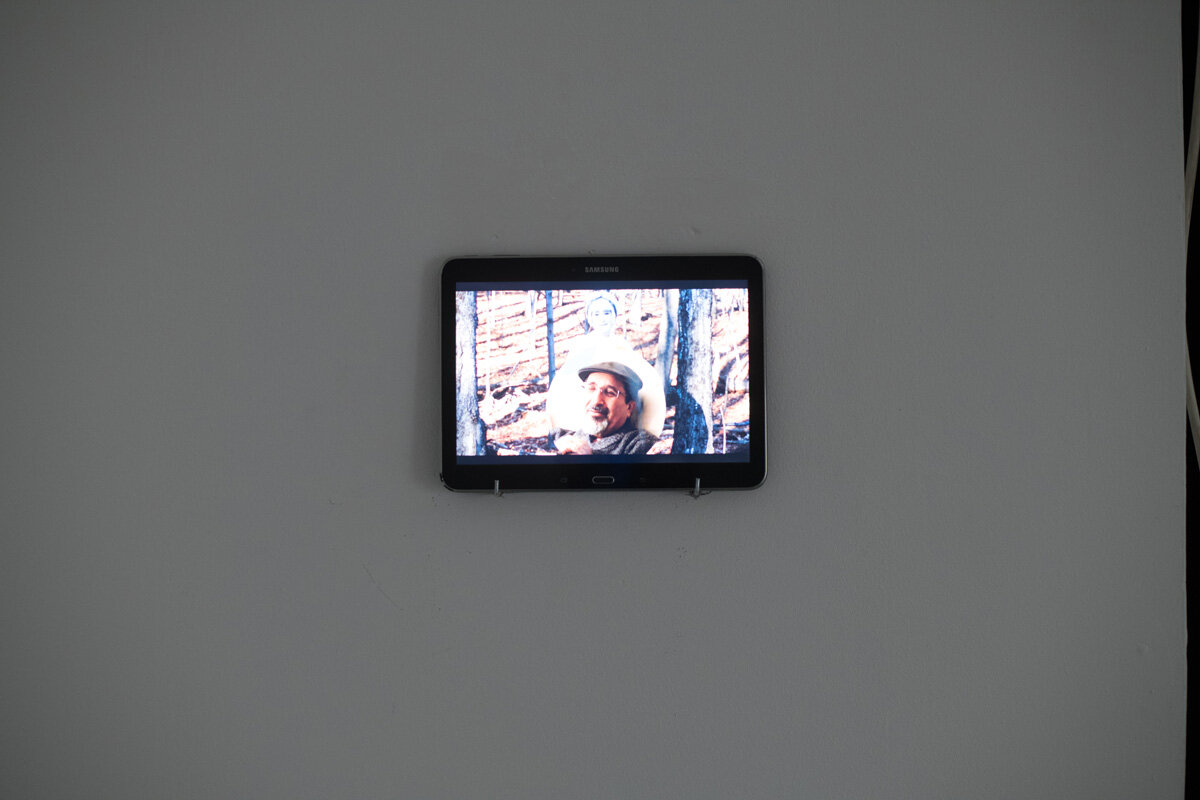
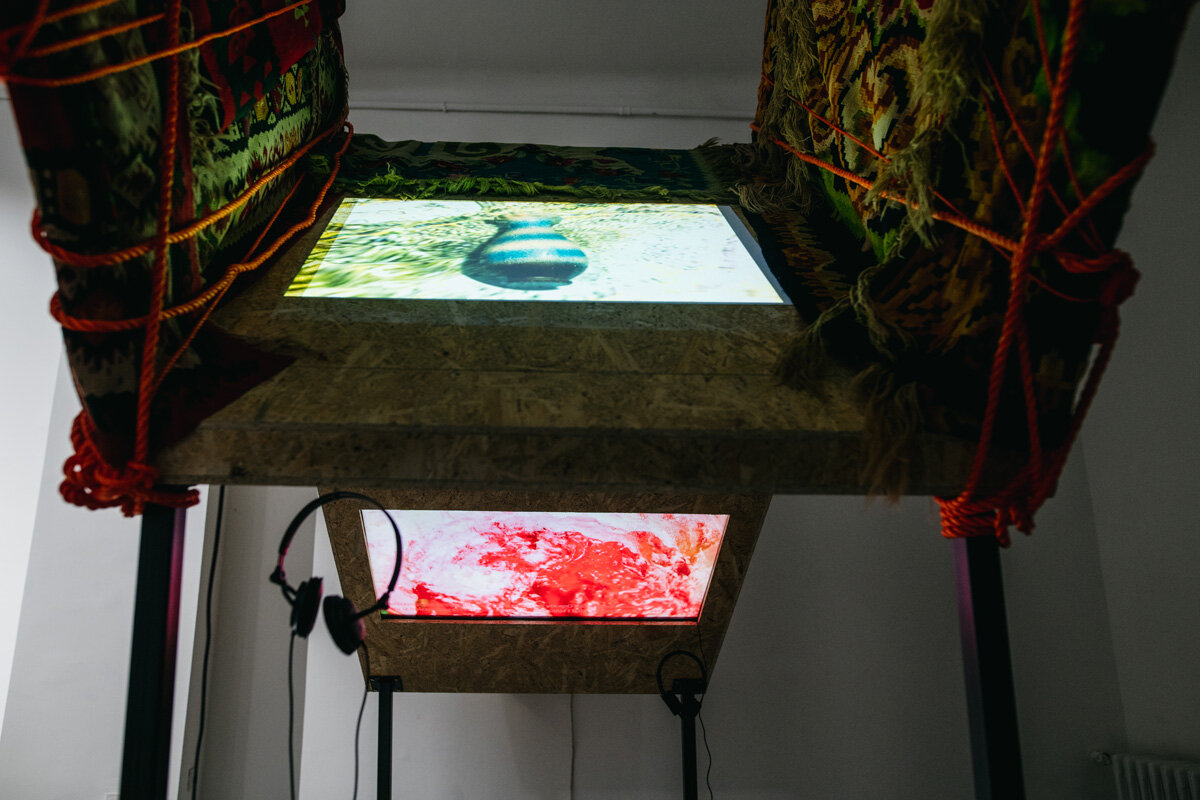
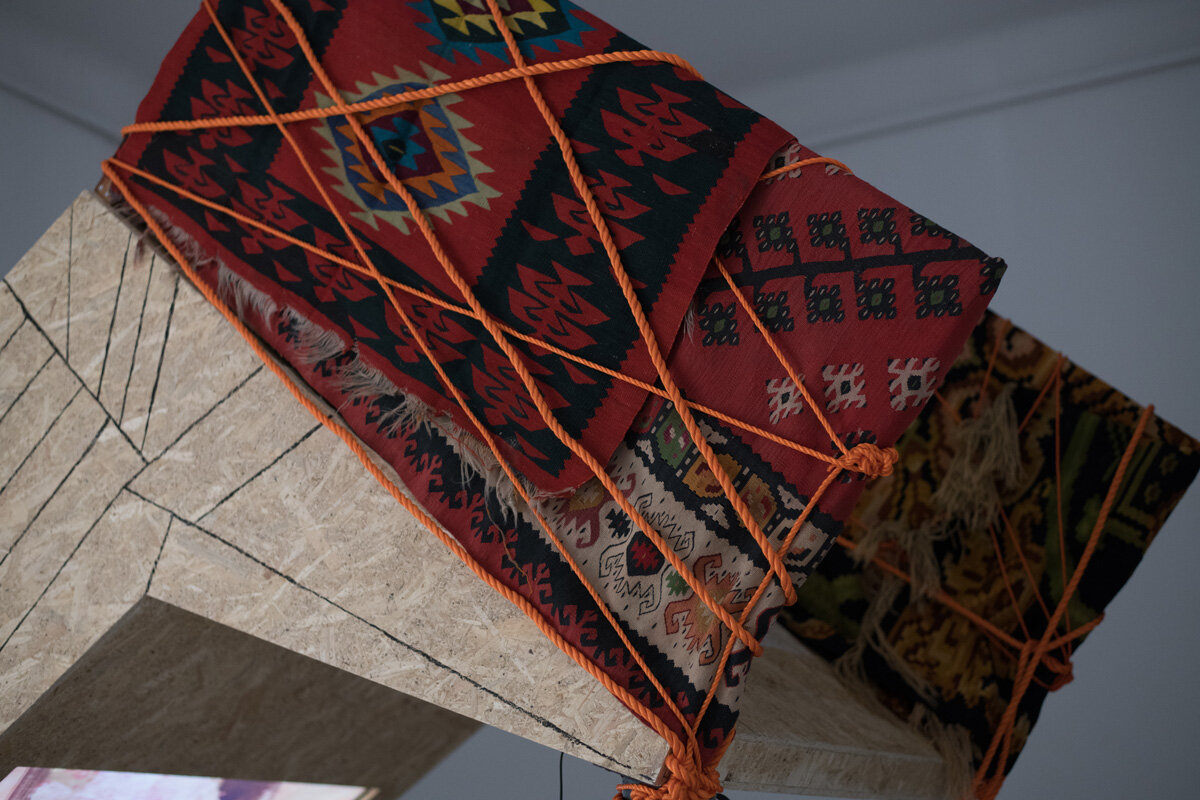

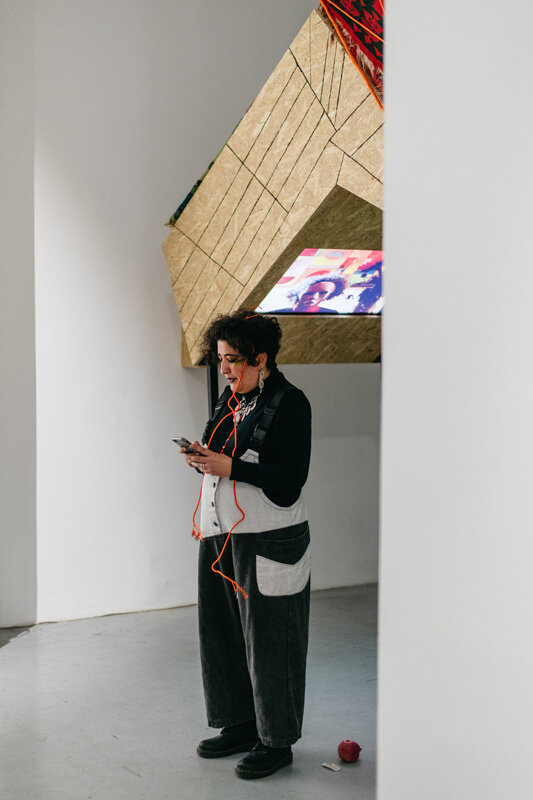
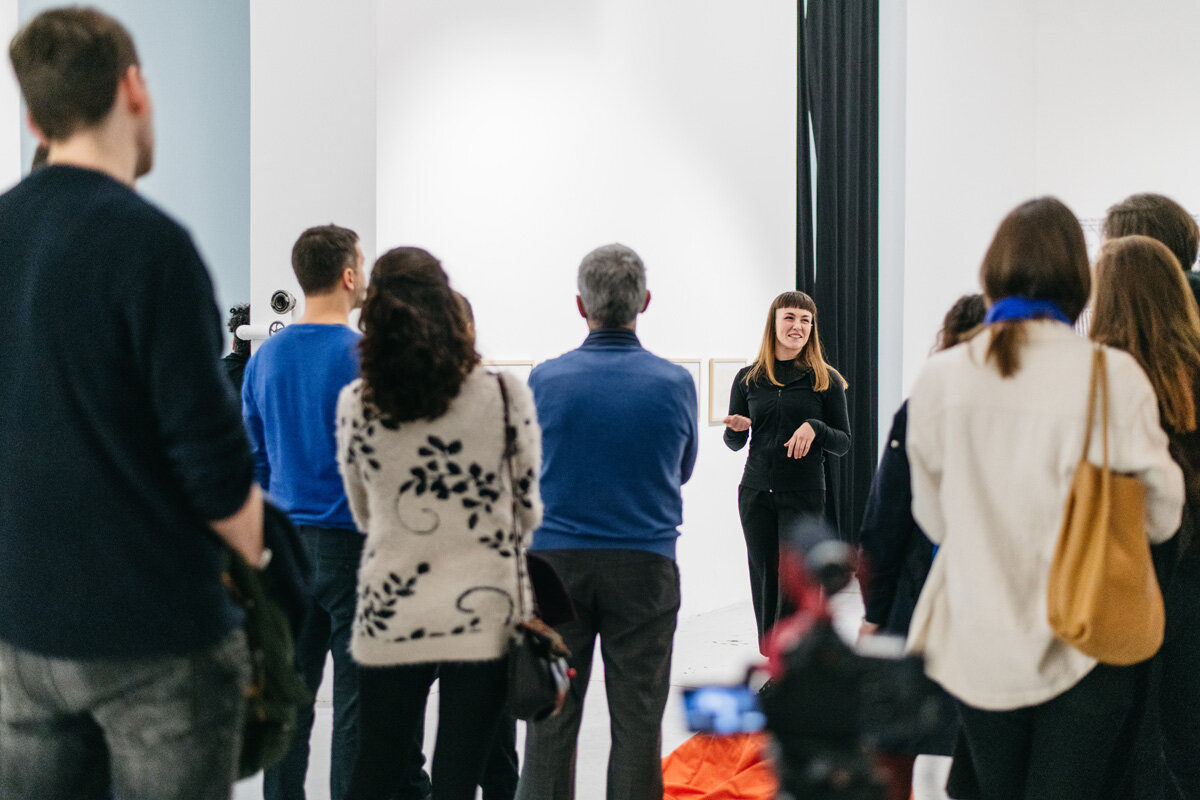

Photo credit: Igor Ripak
Exhibition dates: November 28 - December 14, 2019
Opening date: November 28, 7pm
U10 Art Space, Belgrade, Serbia
Exhibition dates: December 27, 2019 - January 30, 2020
Opening date: December 27, 7pm
Contemporary Gallery Zrenjanin, Zrenjanin, Serbia
Participating artists: Darko Vukić, Liza Grobler, Mirza Dedać, Mila Panić, Igor Ripak, Sahar Sepahdari, Goran Stojčetović
Curator: Nadežda Kirćanski
hybrid narratives, hybrid histories begins with the unsettling sound of multiple echoes from the past that might have something to do with us. Marianne Hirsch named it postmemory, aiming to signify a specific relationship that the new generation has to the memory of their descendants. It is an inherited narrative; the one that sometimes turns out to be rooted so deeply it appears authentic to one’s own experience. A memory that is transmitted to the new generation through images, stories, and behaviors that reflected onto their surroundings, relationships, and perspectives. A fluid, fragmented narrative, an unstable compound built by filtering the already filtered until there is a semi-curated outcome we could deal with; a hybrid narrative, emerged from the shattered pieces of something that did not deserve to be a part of the history, or at least, could not afford it.
But this new generation, on the contrary, seems to be having severe difficulties remembering things: we forgot how to remember because the Internet does not need us to remember. The Internet that has lost its claim on the capital letter as it had (invisibly but fully) penetrated our reality beyond retrieve. We keep on forgetting how to remember things, or how to develop new tools for filtering and remembering since the old ones have been severely damaged with this amount of data flow. They have burned out, leaving us unequipped right here in the middle of our post-truth digital amnesia with a half-burned motherboard that needs to be rebuilt.
Works and experiences shared in hybrid narratives, hybrid histories explore the storytelling instruments that serve a counter-history, revealing and archiving the marginal, overseen, and hidden perspectives in correlation to the post-factuality era we have entered this millennium. It offers a virtual and physical forum to discuss our role in historical knowledge production and the ways we convey these narratives and methods to the next generations.
hybrid narratives, hybrid histories is a collaborative project between Nadežda Kirćanski and HEKLER, a collaborative platform and collective that focuses on the critical examination of hospitality and conflict through art projects, pedagogy, residencies, and archive. The project started developing in November 2018, during Nadežda Kirćanski’s residential stay at the Residency Unlimited in Brooklyn, as a part of the Mangelos Award she was awarded with in that year. Besides providing a two month residency, the Mangelos Award also includes a solo show term upon the recipient’s return to Serbia.
The project hybrid narratives, hybrid histories was conceived as a group show with an aim to dilate the usual form of such shows by taking the role of a selector/curator; this show gathers both local and regional artists, including the ones she had a chance to meet and start collaborating with in New York. The experience that had a thorough influence on scaling this into a project was meeting HEKLER’s activities and general mission which overlapped with what motivated Nadežda for the exhibition in the first place. The encounter with HEKLER platform has metabolically grown into a collaboration which resulted in this project - hybrid narratives, hybrid histories, an international art project consisting of a one-month residency and a group show.
The project is kindly supported by Fond Ilija & Mangelos, Grad Zrenjanin, Proto Belgrade, U10 Art Space, Contemporary Gallery Zrenjanin, SKASKA Zrenjanin, Balkan kilims and weavings, the Foundation for Contemporary Arts New York and HEKLER.
Visual identity: Damjan Malajev
ABOUT
Liza Grobler is a South African artist who works with a variety of media often exploring ideas that bring together physical and psychological spaces and historical and ecological scapes. Her practice is built around process, putting materiality and ephemerality of the objects and media she works with in tension. In 2016, she was a recipient of the Africa Centre Award and a IZIKO Museums commission to create a site-specific work for the National Gallery. Other career highlights include: a solo project for Cape Town International Art Fair (2017), a commissioned public artwork for Cape Town International Design Capital (2015) and the screening of her video work at the ADDIS International Video Arts Festival (Ethiopia) and at MOFO for Forever Now (Tasmania and Deep Space, 2015). She was nominated for the Helgaard Steyn National Award for Contemporary Painting (2015), as well as short-listed for the Commonwealth Arts and Craft Award(2006). She attended residencies in Norway, Finland, Switzerland, Belgium, France, Mexico, India, the United States (ARTOMI and Residency Unlimited) and initiated an international residency and exhibition ‘Smokey Signals from the Groot Karoo’ in South Africa (2017).
Mirza Dedać (1981, Belgrade, Serbia) graduated from the Faculty of Fine Arts, Department of Painting at the University of Arts in Belgrade in the class of professor Čedomir Vasić. He holds an MFA at the same program with mentorship by professor Mileta Prodanović, where he is currently pursuing his PhD. He is the recipient of the Stevan Knežević Award for students’ drawing at the Faculty of Fine Arts in Belgrade.
Nadežda Kirćanski (1992, Zrenjanin) is a visual artist. She graduated from the Faculty of Fine Arts in Belgrade, Department of Sculpture. Currently is a PhD candidate at the same faculty. Her artistic practice employs a range of media, including drawing, objects and site-sensitive installations. Nadežda examines the collision of socio-political realities and contemporary language of youth, unfolding its unacknowledged emotional, physical, and intellectual labor. In 2018 she was awarded with “Dimitrije Bašičević Mangelos” Award and was honored by the Award for drawing of the Vladimir Veličković Fondation.
Mila Panić (1991, Bosnia and Herzegovina) In her artistic practice, the personal experience and background are distinctly evident with an emphasis on the issues of migration, identity and belonging and constant aspiriations for 'better life'. With her art strategies she transforms subjective narratives into identifying ones and universal. Panić is the founder of the platform Fully Funded Residencies for faster and easier overview of art residences, mobility funds and grants, concentrating on those covering expenses as well as for sharing experiences and critical reflection on AIR programs. Currently, she lives and works in Berlin, Germany.
Igor Ripak (1982, Zrenjanin, Serbia) is a free lance photographer and artist based in Vienna, Austria. In 2010 he graduated diploma studies in Dramaturgy at the Theater Department of Dramatic Arts at the Academy of Arts in Novi Sad. He is a student of the Academy of Fine Arts in Vienna in the Art and Photography class. He worked as a set photographer on award wining moves (Min faster i Sarajevo, Refugee 532). He is a co-author of “Jedan zarez nešto” theater play in production of LeStudio from Belgrade.
Sahar Sepahdari-Dalai is a video and performance artist living in Brooklyn, NY originally from Iran. Sepahdari-Dalai works within the axis of healing as a space for multiplying meaning through translation and embodiment. Thinking through object-oriented ontologies and time-based art, she is concerned with decoding social norms and cultural intersections through complex humor. Writing is at the core of Sepahdari-Dalai’s practice as is the poetics of place. She has curated an on-going show called Digital Diaspora, featuring artists within the Islamic Diaspora centering Black Muslim Artists. She has performed or shown video works at Abrons Arts Center, The New Museum, Eyebeam, and Judson Memorial Church in NYC. She recently performed at The Haskell Opera House on the border of the U.S. and Canada as a contemporary version of Emma Goldman. In a surrealist post internet exploration with Dadaist style musicians.
Goran Stojčetović (1975, Skopje / SFRY). He holds a degree in Painting from the Faculty of Arts Priština / FRY. Goran Stojčetović is engaged in deep associative arts which he finds in subconscious and spontaneous expressions through drawing, painting, photography, video and performance. In recent years, he has devoted himself to socially engaged actions through which he reexamines psycho-visual contents of individuals and groups of people he meets while residing in numerous environments and circumstances. Since February 2015, he has led the Art Brut Studio VMA at the Psychiatric Clinic of the Military Medical Academy’s day hospital in Belgrade where, aside from leading drawing workshops, he also works on the theoretic research of the relationship between art and psychology.
Darko Vukić (1992, Ivanjica, Serbia) graduated from the Painting department at The Faculty of Fine Arts in Belgrade (2016). He is a member of The New Centre for Research & Practice. He was juried for Perspectives 15 as one of the most notable young artists in organization of Šok Zadruga in Novi Sad (2016), also awarded for drawing at Faculty of Fine Arts (2013). Guest lecturer on the course: Facing the Art (2019), FUD UJEP, Usti nad Labem, Czech Republic. He is curator of Prosthetic pavilion for The Wrong – new digital art biennale, third and fourth edition (2019/20). Publishes texts and visual interventions in magazines for art and architecture, Zent, 303 (tristotrojka) and POSTblank.
